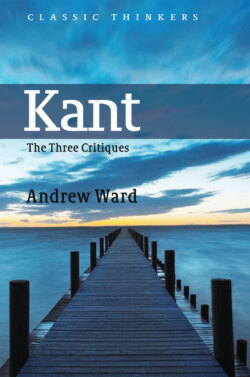Читать книгу Kant - Andrew Ward - Страница 5
Preface
ОглавлениеOver the last fifty years, there has been a widespread tendency among English-speaking philosophers to downplay Kant’s idealism. This seems to me to have been a mistake – so far, at least, as gaining an understanding of Kant’s own ideas is concerned. In this study, I offer an interpretation of the main themes in his three Critiques which places his mature thought squarely within the tradition of idealism: a tradition which includes the theories of Bishop Berkeley and of David Hume (however much Kant himself might have been surprised to learn that Hume falls into this tradition, and however much he would have disliked being compared with Berkeley).
Going along with the emphasis on idealism, I attempt to explain a number of Kant’s central views – those concerning our knowledge of objects in space and time, the ground of our moral obligations and our judgments of beauty – as, in part, reactions to the scepticism and empiricism of Hume. The latter’s views and, more to the point, the arguments that he provides for them are generally both clear and invigorating. While Kant’s views are nearly always invigorating, his reasons for holding them are seldom clear, at least when considered out of context. By placing some of his key philosophical ideas alongside those of Hume, the aim is to elucidate Kant’s arguments and, thereby, to offer an assessment of his conclusions.
A. W.
London, January 2006
